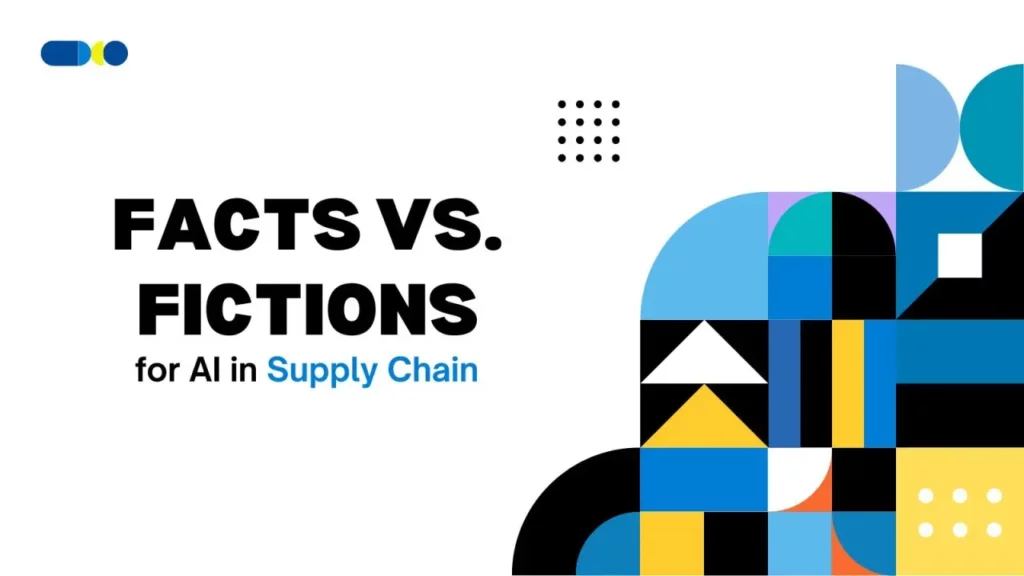AI in supply chain management is a hot topic with both impressive advancements and misconceptions. Here’s a list of some common facts and fictions about AI in this field:
Facts for AI in Supply Chain
★ Improved Forecasting and Demand Planning
AI algorithms can analyze historical data, market trends, and external factors to predict demand more accurately. This helps companies optimize inventory levels, reduce stockouts, and minimize overstock.
★ Enhanced Supply Chain Visibility
AI can integrate data from various sources (e.g., suppliers and logistics providers) to provide a real-time view of the supply chain. This visibility helps identify bottlenecks, track shipments, and improve overall efficiency.
★ Predictive Maintenance
By analyzing usage patterns and sensor data, machine learning models can predict when equipment is likely to fail. This enables proactive maintenance, reducing downtime and maintenance costs.
★ Automated Decision-Making
AI can automate routine decisions based on real-time data and predefined rules, such as reordering inventory or adjusting production schedules. This speeds up operations and reduces human error.
★ Enhanced Supplier Management
AI tools can evaluate supplier performance by analyzing delivery times, quality, and cost data. This helps in making informed decisions about supplier selection and management.
★ Optimized Logistics and Route Planning
AI can optimize delivery routes by considering traffic patterns, weather conditions, and other variables. This leads to cost savings and more efficient transportation.

Fictions for AI in Supply Chain
~ AI Will Completely Replace Human Workers
While AI can automate many tasks, it often works best when combined with human expertise. Humans are needed for complex decision-making, strategic planning, and handling exceptions that AI might not fully understand.
~ AI Systems Are Infallible
AI systems are imperfect and can make mistakes. They rely on the quality of the data they are trained on and may produce inaccurate results if the data is flawed or biased.
~ AI Can Solve All Supply Chain Problems
AI is a powerful tool but not a cure-all. It’s effective when integrated into a well-designed supply chain strategy but cannot address fundamental issues like poor supplier relationships or infrastructure problems on its own.
~ AI Implementation Is Quick and Easy
Integrating AI into supply chain management requires significant time, resources, and expertise. It involves data preparation, system integration, and ongoing management to ensure the technology delivers value.
~ AI Will Lead to Job Losses Across the Board
While AI may lead to changes in job roles, it can also create new opportunities. Roles may shift from routine tasks to more strategic and analytical positions, requiring new skills and expertise.
~ All AI Solutions Are the Same
Many different AI solutions are available, each with its own strengths and weaknesses. What works for one organization might not work for another, so it’s important to choose solutions that align with specific business needs.
Understanding both the capabilities and limitations of AI helps businesses make informed decisions about how to integrate these technologies into their supply chain operations.
